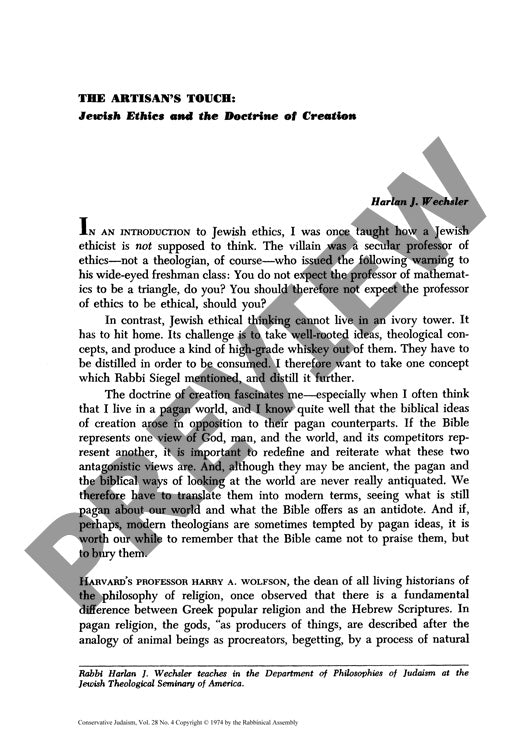The Artisans Touch Jewish Ethics and The
Couldn't load pickup availability
The stark theological divide between pagan and biblical understandings of creation fundamentally shapes their divergent approaches to ethics. While pagan traditions envision gods as procreators who beget beings of similar substance to themselves, biblical theology presents God as an artisan crafting entities distinctly separate from divine essence. Drawing on Harry Wolfson's comparative analysis of religious philosophy, this theological investigation reveals how these contrasting creation narratives generate profoundly different ethical frameworks. In pagan mythology, the minimal separation between human and divine enables humans to "become" divine through mystical practices. Biblical theology, however, emphasizes that humans—though made in God's image—remain separate from divine substance and must "imitate" rather than become God. Through comparative religious analysis of ancient texts and contemporary theological movements, the research reveals how modern spiritual movements often unconsciously embrace pagan assumptions, particularly regarding personal self-actualization as ultimate ethical authority. Authentic Jewish ethics requires maintaining the biblical understanding of divine transcendence while affirming creation's inherent value, rejecting both secular materialism and neo-pagan spirituality. This theological framework establishes the foundation for ethical systems based on relational dialogue with God rather than autonomous self-deification.

More Information
-
Physical Description
-
Publication Information
Published 1974
ISBN
-
Publication Credits
Harlan Wechsler

